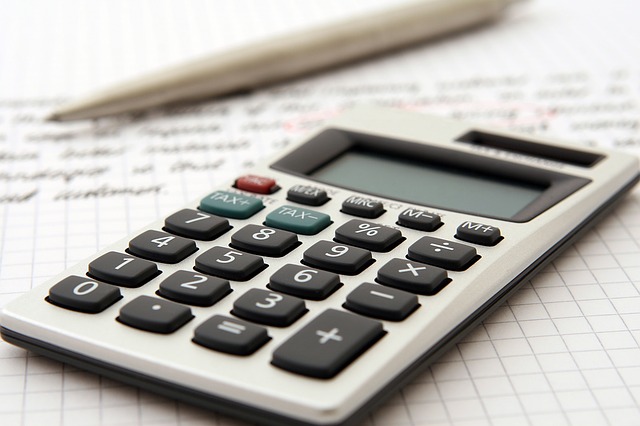SHL Practice Tests (2025 Guide)
All products and services featured are independently selected by WikiJob. When you register or purchase through links on this page, we may earn a commission.
- What Are SHL Tests?
- Different Types of SHL Test
- How SHL Tests Work in Practice
- How to Prepare for SHL Tests (5 Top Tips for 2025)
- Why Do Employers Use SHL Assessments?
- Take Free SHL Practice Tests
- SHL Numerical Reasoning Practice Test (2025)
- SHL Verbal Reasoning Practice Test (2025)
- SHL Diagrammatic Reasoning Test (2025)
- Frequently Asked Questions
- Final Thoughts
- Do You Need More SHL Practice Test?
Saville and Holdsworth Limited (SHL) is an international company that designs personality, behavioural and ability tests.
It is one of the largest such providers globally, with products available in 30 different languages, accessible in more than 150 countries.
These SHL assessments help organisations identify employees with potential and develop them into leaders.
SHL works with all major industry sectors and offers assessments for all job levels and categories. These include sales, IT, admin and leadership.
In addition, the company offers consultancy and management services via its TalentCentral platform.
SHL was acquired by Exponent Private Equity in 2018.
What Are SHL Tests?
Aptitude tests, such as those produced by SHL, aim to assess an candidate’s ability in a competency that has been identified as important for success in a job role.
SHL tests often form the first stage of a recruitment process. Each test requires a particular level of performance for a candidate to progress to the next stage.
SHL is not the only publisher of aptitude tests like these, though it is one of the most prominent.
Other leading brands include:
Different Types of SHL Test
While there are many kinds of SHL assesments available, these are the main ones you’ll see:
-
SHL Numerical Reasoning Test – This SHL test evaluates your ability to interpret and use numbers and statistics. You'll be shown some data, probably in the form of a table or graph, and then you must use that information to answer a question.
-
SHL Verbal Reasoning Test – Evaluates your ability to understand and analyse passages of written information. Usually, you’ll be presented with a written passage and, based on that, you must then identify whether a given statement is true or false, or whether it’s impossible to say.
-
SHL Inductive Reasoning Test – Also called logical reasoning or diagrammatical reasoning, this SHL test evaluates your more abstract problem-solving abilities. Typically, it will involve patterns of shapes; you must work out the rules that govern the pattern and complete it.
-
SHL Deductive Reasoning Test – This SHL test requires you to solve logical conundrums. Syllogisms, seating arrangement puzzles and questions involving numbers and tables are all likely. Basically, you’re trying to use a set of premises to arrive logically at a conclusion.
-
SHL General Ability Test – A broader kind of test that assesses your ability over a number of different areas all at once.
-
SHL Reading Comprehension Test – Very similar to the SHL verbal reasoning test, this measures your ability to comprehend information in written sources and to make judgements.
-
SHL Calculation Test – A more focused kind of numerical reasoning. Instead of graphs and tables, you will need to work with mathematical equations and solve problems.
-
SHL Mechanical Comprehension Test – Focusing on cogs, pulleys, springs and levers, to test your knowledge of mechanical systems and how they work.
-
SHL Situational Judgement Test – These SHL tests don’t have right or wrong answers per se, but rather aim to see how you would respond to potential workplace situations.
-
SHL Personality Test – Again, this is less of a right-or-wrong test; often it's used to evaluate whether you’d be a good fit in a team.
-
Work Behaviour – Another sort of personality test, which looks specifically at your style of working. Do you work well in terms or are you better alone? Big teams or small teams? Are you detail-oriented or more of a big picture person?
Practice SHL Tests with TestHQ.com
Prepare a SHL Test with TestHQ.com
How SHL Tests Work in Practice
SHL tests are usually completed electronically in the first phases of a recruitment process.
Candidates are emailed a link to the tests and will need to complete them in a limited amount of time, usually within a few days or weeks.
The SHL assessment itself will have a time limit; usually a tough one.
To prevent cheating, successful candidates are often required to sit a second test in-person. The results are compared to the initial test and if they are vastly different, alarm bells will ring.
This second test often takes place during an assessment day.
SHL tests aim to assess candidates under pressure in key areas. The results of each candidates’ tests are then compared with a reference group, also known as a norm group.
These norm groups are typically made up of individuals with similar characteristics, such as age, nationality, level of education and so on.
This is to try to account for environmental, societal and cultural factors that could impact performance.
The score on the test needed to progress is therefore not a set number but instead is relative to the norm group.
For instance, instead of a required score of, say, 25 out of 30, the required score could be 50% higher than the average score of the norm group.

If you need to prepare for a number of different employment tests and want to outsmart the competition, choose a Premium Membership from TestHQ.com.
You will get access to three PrepPacks of your choice, from a database that covers all the major test providers and employers and tailored profession packs
How to Prepare for SHL Tests (5 Top Tips for 2025)
Step 1. Research
The fact that you’re reading this article means you’ve already begun this step.
With any challenge, it’s important to know what you’re up against. SHL tests are no different.
In addition to that, there are many different kinds of SHL assessments.
Do some research and find out which SHL test you’re taking. Then you can make your practice much more focused, training the specific skills and strategies needed to perform your best.
All the core skills you’re learning will be applicable to any aptitude test of the same kind, but it pays to be prepared for the specific test in hand.
For example, the most common kind of tests that SHL provide are in their Verify series. Searching for practice materials and tests from this series will help with precise preparation.
Step 2. Learn the Basics of the Test
Even if you’ve taken these kinds of SHL test before, always go back to the basics.
After all, you don’t only need to know how to perform all the necessary operations and workings out, you also need to be able to do them quickly and under pressure.
Make a note of some essentials. How much time are you likely to have? How many questions? What format are the questions?
With that in mind, you can then focus on key skills, and you will have a benchmark for how quick you need to be.
Step 3. Time Management
Many aptitude tests have tight time limits. And even if they aren’t explicitly timed, the time it takes you to complete the SHL test is often recorded – and is sometimes used to evaluate your performance.
So keeping time is important. And, as you will no doubt have experienced before, the added time pressure can have a big impact on your performance.
That’s why it’s imperative that you practise with a timer.
As part of your research, you should be able to get a sense of how long you will have in total and per question. That way you'll know how quick you need to be.
Step 4. Practice, Practice, Practice
By far the most important part of the process is practice. And there’s no way around that. You just need to get stuck in.
But, of course, there are many different ways to practise, and they should all be utilised.
Doing mock tests is your bread and butter. You should aim to do as many as you can.
Some of these you should do untimed. Deliberately and carefully work through the problems to try and get everything right. Stop to look things up if you need to.
Others you should do timed, to get used to the time pressure and to answering the questions quickly and accurately. For these, you should practise on tests as close to the real thing as possible.
SHL offers its own online practice environment, which is worth using. However, note that their tests here do not provide the correct answers or explanations – they’re simply tests with a score at the end.
For SHL practice tests with workings, we recommend TestHQ.com.
For the SHL numerical reasoning tests, candidates should study GCSE-level maths text books and revision guides, concentrating on their speed and efficiency.
Prepare to answer questions involving:
- Percentages
- Ratios
- Inflation rates
- Balance sheets
- Graphs/data interpretation
For the SHL verbal reasoning tests, candidates should attempt to read as many newspapers and magazines as possible, concentrating specifically on commercial awareness issues.
Analyse articles and practise deciphering difficult information quickly.
Step 5. Getting in the Mindset
Amidst all this practice and pressure, don’t forget your mental and physical wellbeing.
It’s important to give yourself regular breaks, eat well and get plenty of sleep. Being well rested, well fed and calm can make a big difference.
Pulling an all-nighter to practise the day before the exam is not a good idea. The extra practice will not make up for how much slower your brain works.
So, make sure you develop your own strategies for remaining calm, especially if you often have problems doing so. Try to keep your diet healthy, but don’t deny yourself a treat every now and then.
Don’t neglect your need for sleep and rest. Breathe, and remember it’s going to be OK.
Why Do Employers Use SHL Assessments?
- Efficient Screening: SHL assessments allow employers to efficiently screen a large number of candidates in a standardized manner. They help identify candidates with the desired skills and abilities for a specific role.
- Predicting Job Performance: SHL assessments are designed to measure cognitive abilities, job-related skills, and personality traits. By assessing these factors, employers can make more informed predictions about an individual's potential job performance and fit within the organization.
- Fair and Objective: SHL assessments provide a fair and objective way to evaluate candidates. They minimize biases and personal judgments that may occur during subjective evaluations.
- Cost-Effective: Using SHL assessments can be a cost-effective method for evaluating candidates compared to other assessment methods or extensive interview processes.
- Validated and Reliable: SHL assessments have undergone extensive research and validation to ensure their reliability and validity in predicting job performance. This provides employers with confidence in the assessment results.
Overall, employers use SHL assessments to streamline their selection process, assess candidates fairly and objectively, and make informed decisions about hiring and employee development.
Prepare for SHL Test with TestHQ.com
Take Free SHL Practice Tests
To get started on that all-important practice, try the tests provided below. They have been created by WikiJob in association with psychometric experts and are closely modelled on real tests.
The numerical and inductive tests consist of 10 questions to be answered in 10 minutes, while the verbal test consists of 10 questions to be answered in 5 minutes (although there is no timer on the test itself).
These tests have been designed to be a little harder than the real thing. That should make it good practice, and mean that the real test feels comfortable by comparison.
But it also means you shouldn’t be discouraged if you find it too tough for the time being.
You can take the tests as many times as you like. Click the ‘Take test’ links below to get started.
If those were useful, you may also like to try WikiJob's psychometric tests app, available for both Apple and Android, which includes 10 numerical tests and 8 verbal tests. The tests include a timer and worked solutions at the end.
Frequently Asked Questions
The best way to practice for an SHL test is to answer SHL-style practice test questions.
To achieve a good score, you will need to brush up on skills like verbal reasoning, numerical reasoning and diagrammatic reasoning.
As the SHL test is timed, you will need to practice the tests against the clock, as this will help to improve your time management.
When you receive your SHL practice test results, find out which questions you answered incorrectly and try to learn from your mistakes.
It is possible to cheat on an SHL test by asking somebody else to complete the test on your behalf, taking the test with assistance from other people or trying to access the SHL test question bank to prepare your answers in advance.
Remember, if an employer thinks that you may have cheated during the SHL test, it is within its rights to reject your application and it may even prevent you from applying for jobs in the future.
Even if you are hired, you may be found out later if your performance does not match up to the results of the SHL test. Cheating on an SHL test is not recommended – it is far better to practice and prepare for the assessment.
SHL scores are interpreted through the use of norm groups and percentiles. The score required to pass will depend on the individual employer and allocated norm group.
Generally speaking, a percentile score of 92–99 is considered well above average and a percentile score of 73–90 is considered above average.
SHL tests are often considered to be difficult, but this is intentional.
Your goal is to achieve a high score when compared to others taking the test. If you find the SHL test questions difficult, other people in your norm group are probably finding them difficult too.
Putting in plenty of practice is important if you want to achieve the best possible score. This will help you to work quickly and accurately. You will also be able to identify the areas that you find most difficult and allocate more preparation time to those sections of the test.
SHL tests are used by several major employers, including Barclays, Danone, Marks & Spencer, Microsoft and Xerox Corporation. They are used worldwide but are particularly popular within the UK.
There are several different types of SHL tests, each with its own time limit. All of the SHL tests can be completed in under one hour, and many can be completed much faster than this.
For example, the numerical reasoning test takes between 17 and 25 minutes, whilst the verbal reasoning test takes between 17 and 19 minutes. There is no time limit for the situational judgement test.
Answer the SHL personality test questions truthfully and honestly, as this will provide the most accurate representation of your personality. Before taking the test, spend some time thinking about your personality attributes and traits and how these relate to the job role you are applying for.
You should also invest plenty of time in completing practice assessments through sites such as TestHQ.com.
SHL produces a range of psychometric tests. SHL tests are designed to assess diagrammatic, numerical and verbal reasoning abilities. Speed, accuracy and overall test results are used to compare candidates within a norm group. SHL test results are an important part of the hiring process for many recruiters and employers.
Personality questionnaires were first used in the Second World War to recruit personnel into the armed forces. SHL was the first company to develop tests for other organisations.
SHL was founded in 1977 by the psychologists Peter Saville and Roger Holdsworth.
In 1984, SHL's Occupational Personality Questionnaire was launched. This is now considered one of the most accurate psychometric assessments and is still widely used.
The founders left SHL in 2003 after a boardroom dispute. Peter Saville set up Savillle Consulting (now Saville Assessment, sold to Towers Watson in 2015) where he and his team developed the Saville Wave Personality Questionnaire.
In 2018, SHL was acquired by Exponent Private Equity.
About 80% of the FTSE 100 companies and half of the Fortune Global 500 companies use SHL tests to find and develop talent.
Its customers include:
- Microsoft
- Heineken
- Wills Group
- County of Riverside
- Financial Services Compensation Scheme
- The Adecco Group
- Sonic Automotive
- Mckinsey
- CEB (now known as Gartner)
-
It has a team of leading industry experts. The tests at SHL are developed by experienced I/O psychologists and scientists. They use more than 45 billion data points and advanced assessment science to create their products. Through analysing over 9,000 successful leaders, as well as collecting real workplace data, they have identified key traits that lead to success.
-
It uses scientifically proven methods. Instead of relying on intuition, the developers test their products scientifically.
-
It is over 40 years old. SHL has been developing, testing and improving its questionnaires continually over a far longer period than its competitors.
-
Its products are bespoke. SHL works directly with employers to create programmes that help them in specific areas of training and recruitment.
-
It has developed advanced software and technology. SHL’s technology integrates with clients' existing platforms. This reduces set-up costs and provides a better candidate experience.
Here are some general tips that can help you prepare and increase your chances of success:
- Familiarize yourself with the structure, timing, and question types of the specific SHL test you will be taking.
- Take practice tests and sample questions
- Review your answers and identify areas where you can improve.
- Develop effective time management strategies
- Take the time to read instructions thoroughly before attempting each question.
- Prioritize accuracy in your answers.
- Practice exercises that enhance your critical thinking abilities.
- Brush up on relevant knowledge
- Stay calm and manage stress
- Seek guidance and support
Final Thoughts
If you’re applying to lots of graduate-level jobs you will almost certainly need to take some aptitude tests – and it’s highly likely you’ll come across an SHL test.
SHL tests can be tough, but that’s intentional. Remember, it’s not your absolute score that counts, but rather your score relative to your norm group.
So, if you’re finding the test hard, don’t panic. It might just be a particularly difficult test that everyone is struggling with. All you need to get is a score a little higher than the norm group.
The main thing you should understand is that there is no replacement for practice. Not only do you need to be accurate on these tests, you also need to be fast.
Even if you’re excellent at working out the answers, if you can’t do it quickly and comfortably, you’re in for a rough ride.
So, the core of your preparation should be to take practice tests and to work on the areas you find most difficult. Try and get everything down to second nature.
Do You Need More SHL Practice Test?
WikiJob recommends using TestHQ.com mock aptitude test packages to help you pass.






